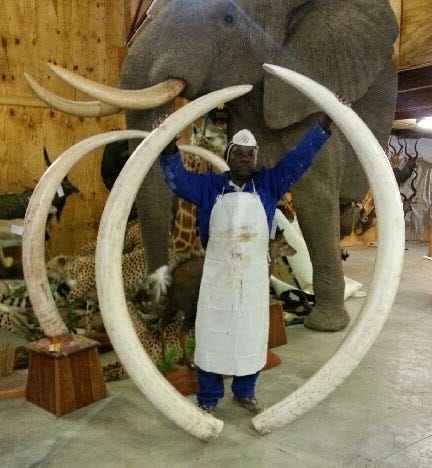Can I Put These In My Trunk?
One of the crucial principles in identifying the various animals mentioned in Tanach is that they must be species with which the Jewish people were familiar. The animals of the Torah are gazelles and lions and storks. There are no pandas or penguins or parasaurolophuses in Scripture.
One might presume that this translates into the principle that all the animals of Scripture must be native to the Land of Israel and the surrounding region. That is approximately true, but not exactly. It is also possible to be familiar with a non-native animal if it is reported or imported.
The latter case is the scenario in one instance. King Solomon's ships brought him the following riches:
The king had a fleet of trading ships that sailed with Hiram's fleet. Once every three years the ships returned, loaded with gold, silver, ivory (shenhabim), monkeys, and peacocks. (I Kings 10:22)
Elephants and monkeys and peacocks are not native to the Land of Israel, but these items are described as having been sent in by ship.
Now, the goal of the forthcoming Biblical Museum of Natural History is to display the animals of the Torah - live exhibits for the smaller species, and taxidermy mounts for the larger ones. As such, it would be appropriate, not to mention spectacular and awe-inspiring, to display a set of elephant tusks, similar to those that King Solomon received. However, it is absolutely impossible to buy a pair of elephant tusks. Due to the problem of poaching, trade in tusks is highly illegal. The only tusks that are free from legal restrictions are those of mammoths, because mammoths are not in danger of extinction. But mammoth tusks are not suitable acquisitions for my museum for three reasons: they are crazy expensive, they are not Biblical, and they would contravene my mandate not to have anything controversial in the museum.
What to do? I'm traveling to Africa on Wednesday and I just learned of a company there which manufactures museum-quality replica elephant tusks. They look identical to the real thing and are 100% legal. They are fairly pricey, but just within the range of the museum's very tight budget. There's just one problem:

At about 30 pounds each, they are not as heavy as the real thing (which can weigh over two hundred pounds per tusk), but at around eight feet in length, shipping is extraordinarily expensive. I was wondering if I could bring them with me on the plane as an additional luggage item. El-Al's baggage rules don't have a clear policy for elephant tusks. I called El-Al, and they said that it would depend on the agents at Johannesburg airport. But it didn't look good!
Searching around further, I discovered that some slightly inferior but much cheaper replica elephant tusks can be purchased in the US. I have a good connection with El-Al in LA, as well as a greater luggage allowance, so it might be better all around to buy them in the US and to try to bring them on the plane with me when I fly back from LA in August.
Failing that, I'm going to check if any ships from King Solomon's trading fleet are still in business.
* * *
Amidst everything we do, we say Hashem, please help our soldiers bring our boys back home.
(You can support the soldiers in a practical way here.)


